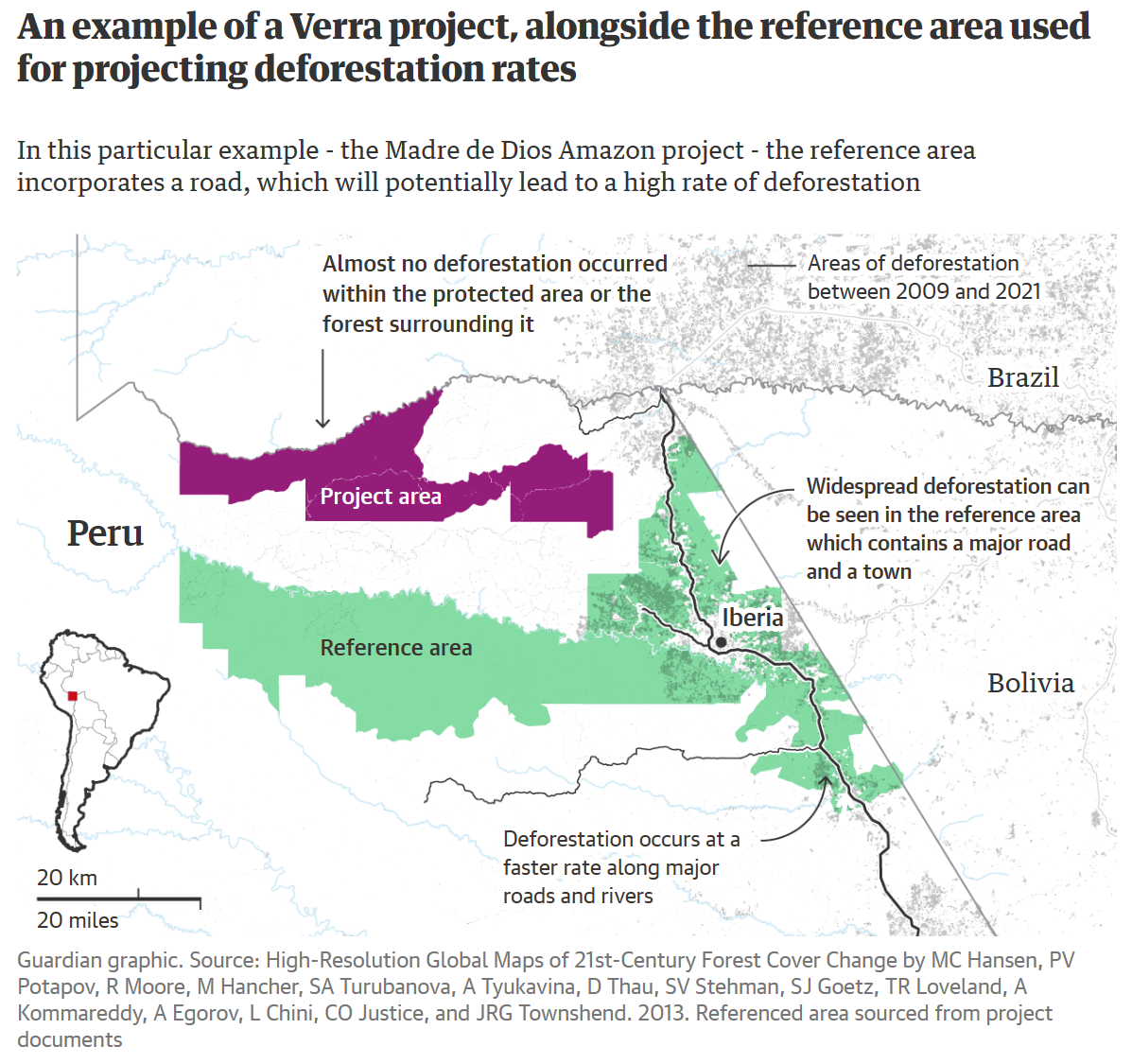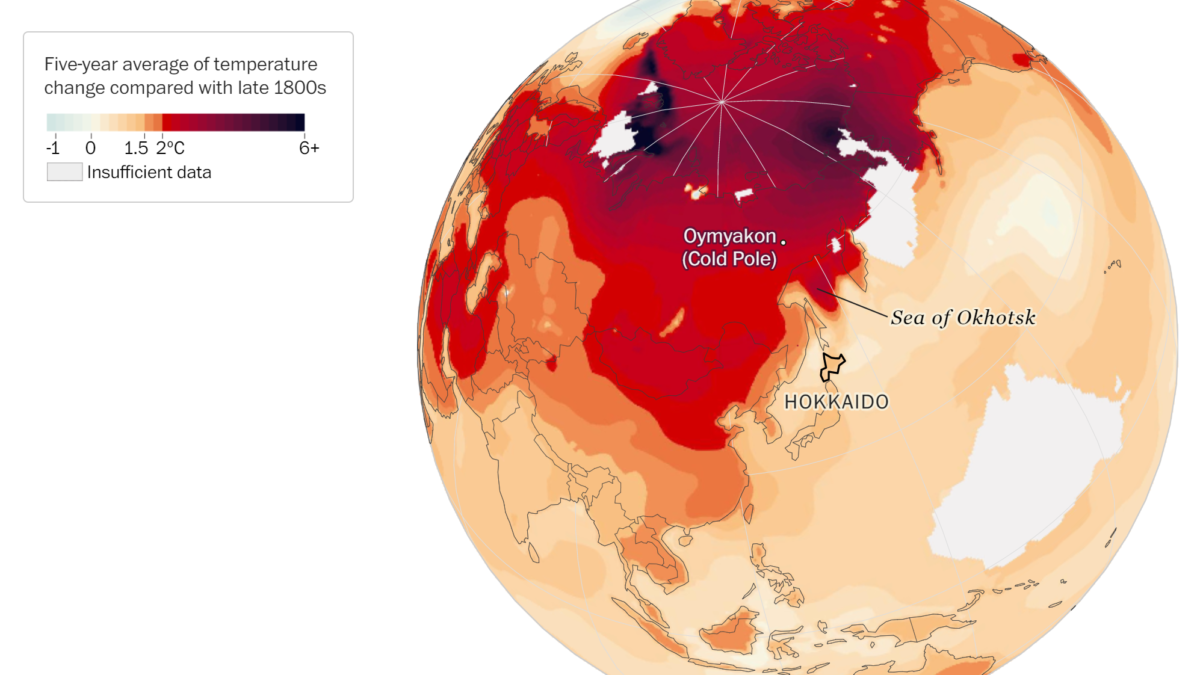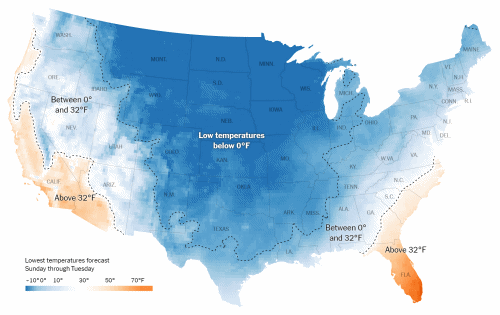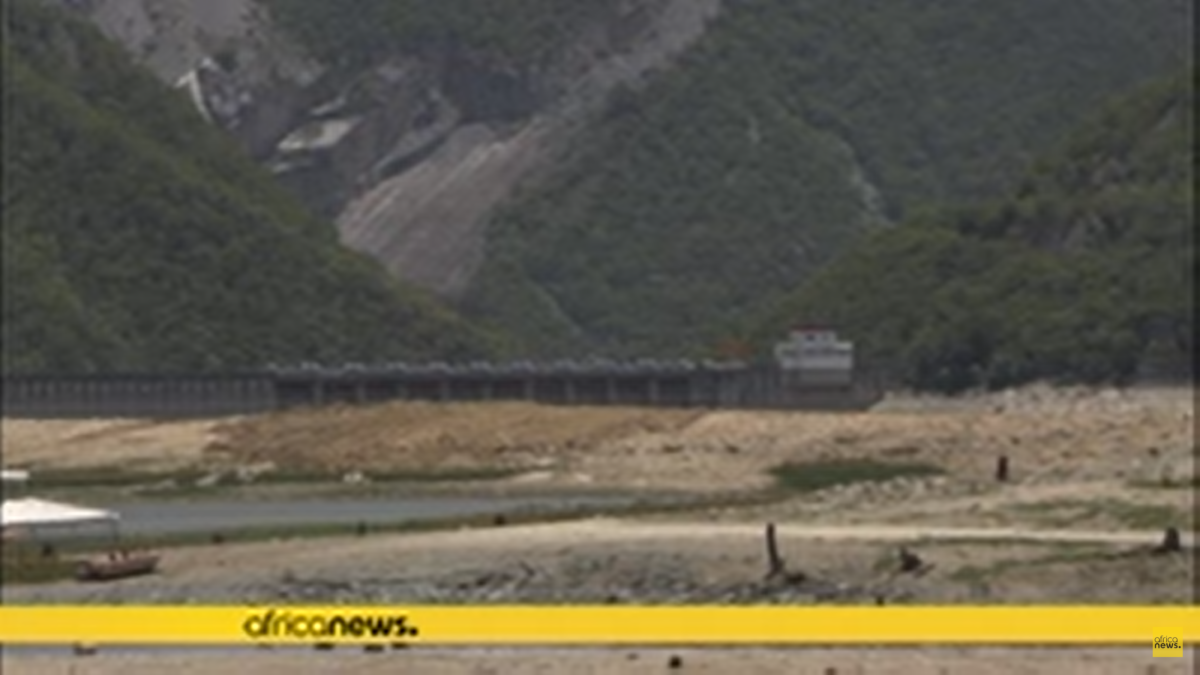More than 90 percent of rainforest carbon offsets by biggest certifier are worthless, analysis shows – “It’s disappointing and scary”

By Patrick Greenfield
18 January 2023
(The Guardian) – The forest carbon offsets approved by the world’s leading certifier and used by Disney, Shell, Gucci and other big corporations are largely worthless and could make global heating worse, according to a new investigation.
The research into Verra, the world’s leading carbon standard for the rapidly growing $2bn (£1.6bn) voluntary offsets market, has found that, based on analysis of a significant percentage of the projects, more than 90 percent of their rainforest offset credits – among the most commonly used by companies – are likely to be “phantom credits” and do not represent genuine carbon reductions.
The analysis raises questions over the credits bought by a number of internationally renowned companies – some of them have labelled their products “carbon neutral”, or have told their consumers they can fly, buy new clothes or eat certain foods without making the climate crisis worse.
But doubts have been raised repeatedly over whether they are really effective.
The nine-month investigation has been undertaken by the Guardian, the German weekly Die Zeit and SourceMaterial, a non-profit investigative journalism organisation. It is based on new analysis of scientific studies of Verra’s rainforest schemes.
It has also drawn on dozens of interviews and on-the-ground reporting with scientists, industry insiders and Indigenous communities. The findings – which have been strongly disputed by Verra – are likely to pose serious questions for companies that are depending on offsets as part of their net zero strategies.
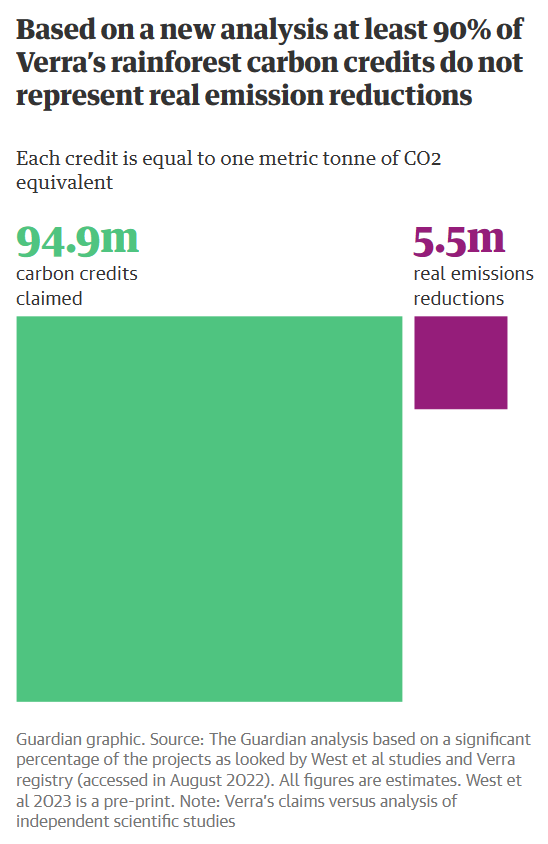
Verra, which is based in Washington DC, operates a number of leading environmental standards for climate action and sustainable development, including its verified carbon standard (VCS) that has issued more than 1bn carbon credits. It approves three-quarters of all voluntary offsets. Its rainforest protection programme makes up 40% of the credits it approves and was launched before the Paris agreement with the aim of generating revenue for protecting ecosystems.
Verra argues that the conclusions reached by the studies are incorrect, and questions their methodology. And they point out that their work since 2009 has allowed billions of dollars to be channelled to the vital work of preserving forests.
The investigation found that:
- Only a handful of Verra’s rainforest projects showed evidence of deforestation reductions, according to two studies, with further analysis indicating that 94% of the credits had no benefit to the climate.
- The threat to forests had been overstated by about 400% on average for Verra projects, according to analysis of a 2022 University of Cambridge study.
- Gucci, Salesforce, BHP, Shell, easyJet, Leon and the band Pearl Jam were among dozens of companies and organisations that have bought rainforest offsets approved by Verra for environmental claims.
- Human rights issues are a serious concern in at least one of the offsetting projects. The Guardian visited a flagship project in Peru and was shown videos that residents said showed their homes being cut down with chainsaws and ropes by park guards and police. They spoke of forced evictions and tensions with park authorities.
The analysis: “It’s disappointing and scary”
To assess the credits, a team of journalists analysed the findings of three scientific studies that used satellite images to check the results of a number of forest offsetting projects, known as Redd+ schemes. Although a number of studies have looked at offsets, these are the only three known to have attempted to apply rigorous scientific methods to measuring avoided deforestation.
The organisations that set up and run these projects produce their own forecasts of how much deforestation they will stop, using Verra’s rules. The predictions are assessed by a Verra-approved third party, and if accepted are then used to generate the credits that companies can buy and use to offset their own carbon emissions.
For example, if an organisation estimates its project will stop 100 hectares (247 acres) of deforestation, it can use a Verra-approved formula to convert that into 40,000 CO2e (carbon dioxide equivalent) of saved carbon emissions in a dense tropical forest if no deforestation takes place, although the formula varies according to habitat and other factors. Those saved emissions can then be bought by a company and applied to its own carbon reduction targets.
Two different groups of scientists – one internationally based, the other from Cambridge in the UK – looked at a total of about two-thirds of 87 Verra-approved active projects. A number were left out by the researchers when they felt there was not enough information available to fairly assess them.
The two studies from the international group of researchers found just eight out of 29 Verra-approved projects where further analysis was possible showed evidence of meaningful deforestation reductions.
The journalists were able to do further analysis on those projects, comparing the estimates made by the offsetting projects with the results obtained by the scientists. The analysis indicated about 94% of the credits the projects produced should not have been approved.
Credits from 21 projects had no climate benefit, seven had between 98% and 52% fewer than claimed using Verra’s system, and one had 80% more impact, the investigation found. [more]
